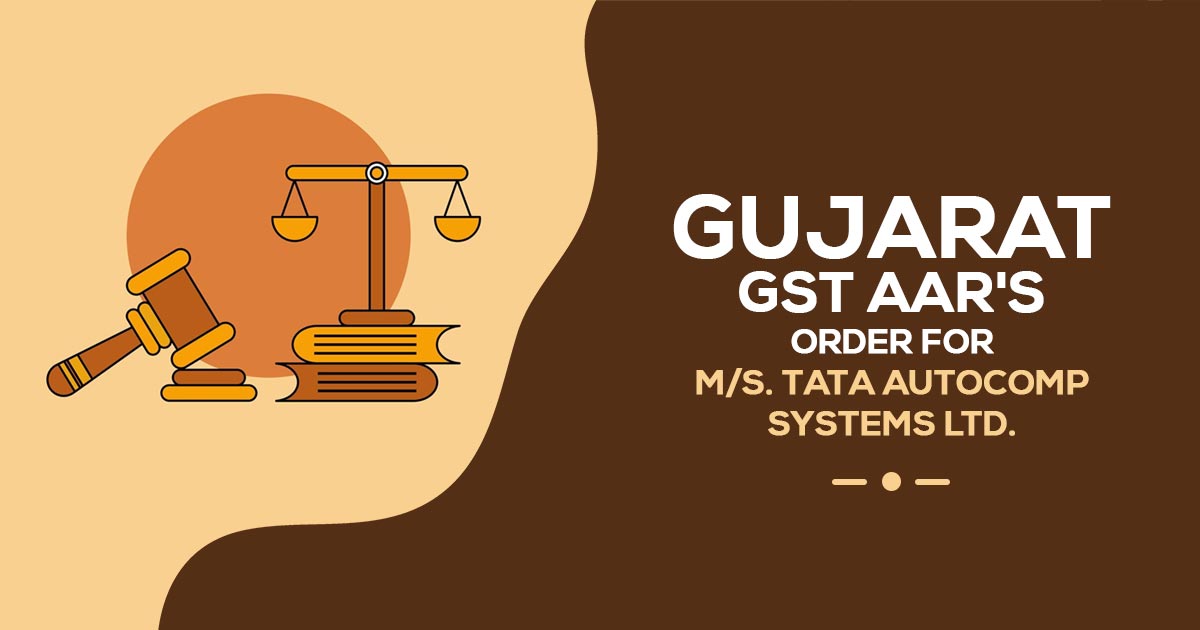🔍 Introduction
The Authority for Advance Ruling (AAR) in Gujarat has recently denied GST exemption for school transport and catering services—even when provided exclusively to a school—because the service provider charged fees directly to parents. This decision marks a pivotal clarification: only services paid by the institution qualify for GST exemption, not those billed directly to students. This ruling not only affects service providers working with schools but also educates schools, parents, and accountants on the strict interpretations of GST exemptions.
📌 What Is the Core Issue?
-
Notification No. 12/2017‑CT (Rate), Serial No. 66(b)(i) & (ii):
Exempts transportation and catering services to educational institutions (pre‑school to higher secondary), regardless of who provides them. -
Key Question:
Do these exemptions apply when parents—rather than the school—pay the service provider?
⚖️ Facts of the Gujarat Advance Ruling
-
Applicant: M/s Protego Services LLP (later Protego Services Pvt Ltd).
-
Service Provided: School bus and cafeteria services exclusively for Fountainhead School, Surat.
-
Business Model: Agreement with the school trust—but payment collection was directly from parents.
-
AAR Findings:
-
GST exemption demands that services be rendered to the educational institution, not individuals.
-
Since no payment was made by the school or trust, the service provider could not meet the exemption criteria.
-
Consequently, GST cannot be exempted under the relevant notification entries
-
🧾 Detailed Ruling Analysis
| Condition for Exemption | Met? | Reason |
|---|---|---|
| Service provided to educational institution | ❌ | Payments were made by parents/students, not by the institution. |
| Service includes transport/catering for eligible school levels | ✅ | Fountainhead School is pre‑school to higher secondary. |
| Supply agreement with the institution | ✅ | There was an official contract in place. |
-
Despite contractual backing, the absence of direct institutional payment disqualified the exemption.
-
Refund claims for past taxed payments were dismissed, as refund issues fall outside Section 97 AAR jurisdiction .
📌 Why This Ruling Matters
-
Clarifies “With Institution” vs. “With Students”
Service providers must ensure that fees are billed to the school or trust—not individual parents—to maintain GST exemption. -
Simplicity Is Key
Avoid complex billing systems where parents pay directly. Even if services are exclusively for school purposes, GST liability exists if the school doesn’t pay. -
A Warning to Outsourced Providers
Many third‑party operators offering school services unaware of this nuance may face unexpected GST demands.
✅ Practical Tips for Schools & Providers
-
Draft agreements and invoices carefully:
-
Use school/trust as invoiced entity.
-
Never list parents/students as the paying party.
-
-
Consider a pooled billing model:
-
Charge the school as a lump sum, passing costs to parents through school-led billing.
-
-
Consult your CA or GST advisor:
-
If unsure, obtain a GST-AAR or state advance ruling based on your billing arrangements.
-
-
Track refund eligibility:
-
If past GST was paid incorrectly, consider filing refund claims through proper channels (not AAR).
-
🏫 Real-Life Snapshot
Protego Services LLP (later Pvt Ltd), contracted by Fountainhead Education Trust, ran school buses and cafeteria services. However, since they billed parents directly, GST liability remained intact. The AAR reiterated that benefits under serial no. 66(b)(i)/(ii) require the school to receive and make payment for those services
🧾 Implications for Parents
-
Expect GST (5% or applicable rate) when paying schools or service providers for transport and meals.
-
Oversight: Ask your children’s school whether the institution or parents are billed. Billing through schools may reduce costs.
🔎 Comparison with Other Jurisdictions
-
AAR Tamil Nadu (Batcha Noorjahan): Similar ruling—GST applicable when transport fees are paid directly to service providers
-
Maharashtra AAR (May 2022): Exemptions allowed only if transport/canteen services are billed along with school fees and received by the institution
✅ Key Takeaways
-
GST exemption applies only when the school/trust pays for transport or catering services.
-
Direct parental payments invalidate that exemption—even with an institutional agreement.
-
Accurate billing and documentation are essential to maintain eligibility.
-
Services providers must review contracts and invoicing models to avoid retrospective tax liabilities.
🧩 Conclusion
The Gujarat AAR’s decision is a timely reminder: GST exemption is contingent on institutional invoicing, not the mere use of services for educational purposes. It's a vital distinction that schools, buses, canteen operators, and parents must understand. Review your billing structures, ensure your invoicing routes payments correctly, and consult professionals to safeguard against unwanted GST claims.
❓ FAQs (SEO-Friendly)
Q1: When do school transport/catering services qualify for GST exemption?
A: Only when services are paid for by the school or educational institution, not by parents or students.
Q2: What if parents pay the provider directly?
A: Those services become taxable, as the exemption under Serial No. 66(b)(i)/(ii) doesn’t apply.
Q3: Can services contracted through the school but billed to parents be exempt?
A: No. Contract must be with and payment received from the school or trust.
Q4: Are retrospective GST refunds possible here?
A: Refund claims should go through proper compliance channels—not via AAR, which can't rule on refunds
Q5: What rate will apply if GST is due?
A: Likely 5% under passenger transport and 18% for catering, depending on service classification.


